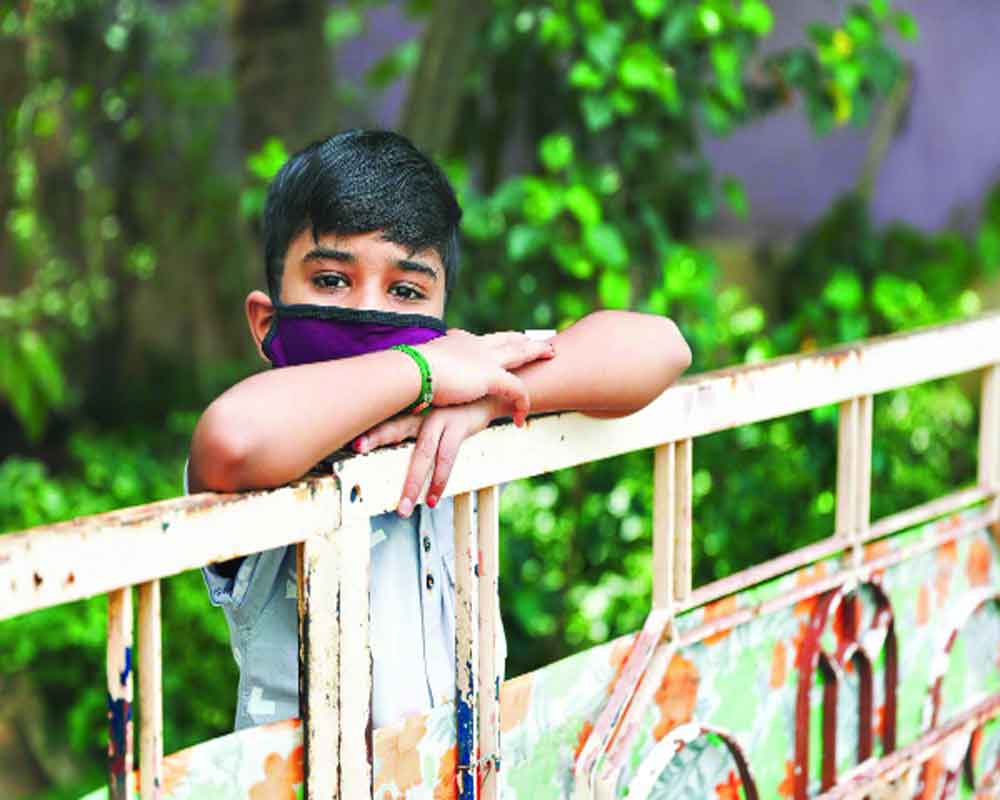Adolescents across socio-economic groups are struggling to adjust to a life without the familiar environment that a traditional school day provides
Emerging from the waves of Covid-19,more than ever, we must prioritize the mental health of children and adolescents. Their well-being should be at the forefront of the preparations for dealing with future pandemic waves.
Generation Z is quietly perceiving the layers of changes in people’s lives since the virus encroached on their spaces in early 2020. Now, while the much-awaited return to school is exciting for many, there would be children anxious or even frightened to go back to regular school.
This is a time of the year when adolescents would have spentdays at schools and colleges in the company of hundreds of others, but in the last one and a half years they have got used to a dreary, new normal of being home alone. The virus brought in many stressors to the psychological environment, the impact of which is yet to be played out in statistical data charts and graphs to analyze the repercussions on society and the upcoming generation. The pandemic control measures have definitely contributed to new mental health issues or a worsening of existing ones in all, but the impact ripples are far and wide or even beyond immediate comprehension.
Some children or youth may be grieving the loss of a parent or a loved one, others may be living in fear of the disease or losing a job. There are millions in our country who have actually dropped out of school for want of a digital device or internet connectivity. Adolescents across all socio-economic groups are struggling to adjust to a life without the familiar environment that a traditional school day provides. Amid social isolation and lack of peer support,the need for personal or real-world connections is growing. The absence of the demands of school life and regular examinations to keep the learning minds occupied are affecting the psychological environment of every child. The children of essential workers and homeless children are at an increased risk: the former confined to their homes without adult supervision and the latter lacking in basic amenities and security.
Across socio-economic situations, there are children trapped in dysfunctional homes suffering all types of abuse, even sexual, or resorting to substance abuse to escape the wrath of stressed-out adults. Growing cyber dependency is alarmingly on the rise.
With increasing stress comes an increased risk of developing mental health problems or re-emergence of dormant diseases at a time when fewer options to relieve stress are available. Early experience of such problems increases their risk of mortality or lifelong morbidity. When schools begin to reopen, we will need to implement more formal structures for mental health screening. We must take precautionary measures against stigma and superstitions affecting care giving, and there should now be social laws in place to minimize the stigma around mental health conditions.
We all know the law is the most efficient tool for blunting the effects of prejudice and stigma by protecting the diseased person from the negative impact of societal ignorance. The authorities must propagate strong messages to create an inclusive environment for those needing psychiatric help. India's mental healthcare system needs strengthening. The authorities should proactively implement the Mental Healthcare Act, 2017. This is also the time for an integrated mental healthcare policy covering all aspects of helping a sick mind.
We also need to enhance mental health awareness and stigma-busting programs in local dialects or languages through government and private sector initiatives. We should expand social-emotional learning programs to help build resilience in the growing minds. Capacity building for mental health management is animmediate must to meet a looming calamity, and suicide prevention programs should be revamped in preparation for a possible epidemic. There is a serious shortage of mental healthcare workers in India and it needs to be addressed. Tele-psychiatry may possibly be an immediate solution for the patients living in less efficient conditions.
Authorities must support schools and behavioral health care agencies in working together to ensure that when schools reopen, students will have necessary mental health services on the campuses to provide screenings, interventions, and referrals.
Our young people are the future of our country. We must remember that the period between ages 10 to 25 is a critical time for brain development and maturation. Both the experiences our young people face today and the support they receive from us in coping with and navigating the challenges will have a profound impact on their ability to be successful adults, parents, and citizens in the years to come.
(The writer is a regular columnist with The Pioneer. The views expressed are personal.)


























